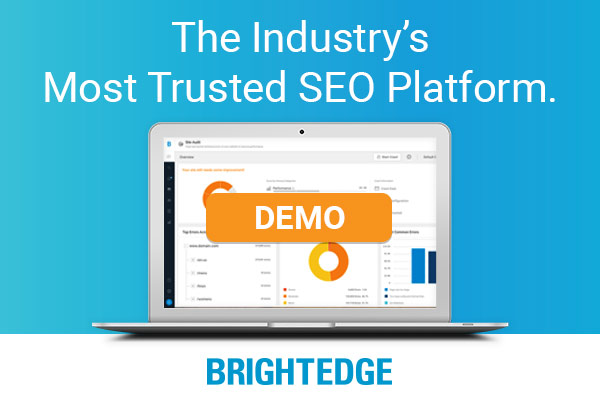Integrating modern marketing and smart content allows brands to optimize performance for Organic and other digital marketing channels along the buyer's journey and funnel.
BrightEdge developed the Smart Content framework partially as a response to many brands’ struggle to make their regular content highly visible in organic listings on search engine results pages (SERPs). The core challenge of marketers today is something we call “content congestion:” the deluge of articles, blog posts, social posts, emails, videos, glossaries, and other types of content vying for customers’ attention online. The smart content framework provides something akin to a fast lane: it packs enough SEO and mobile-friendliness best practices into the content from the moment it is published so that it gets to the top of the SERP in a relatively shorter amount of time, offering strong organic search success.  As more brands adopt an augmented marketing with smart content, it becomes increasingly clear that the framework provides marketing benefits far beyond the organic channel. We’re seeing early adopters of the framework successfully implement smart content in paid search, email, and social media campaigns. The key to smart content success in all of these marketing channels is, to a great extent, its ability to identify specific customer intent. The content pieces are developed less as a platform for top-down brand messages and more as a targeted and direct response to specific customer needs. And because of that smart content tends to perform well in any direct response campaign. Let’s look at several examples.
As more brands adopt an augmented marketing with smart content, it becomes increasingly clear that the framework provides marketing benefits far beyond the organic channel. We’re seeing early adopters of the framework successfully implement smart content in paid search, email, and social media campaigns. The key to smart content success in all of these marketing channels is, to a great extent, its ability to identify specific customer intent. The content pieces are developed less as a platform for top-down brand messages and more as a targeted and direct response to specific customer needs. And because of that smart content tends to perform well in any direct response campaign. Let’s look at several examples.
Smart content for paid search
Paid search and organic search work hand-in-hand, occupying the same touch point--the SERP. Historically, the overlap between paid and organic was not extensive: often paid search managers developed their own campaigns and landing pages with little regard to organic objectives or performance. These days paid search managers are working more closely with their SEO counterparts, coordinating, for instance, paid investments for important organic topics that have no organic real estate above the fold of the SERP. Some of these PPC managers go a step further. They examine the user questions that smart content pieces target and start bidding on them for paid search campaigns. Since these pages are fully tuned for their respective queries, and since they perform very well given their integrated CTAs and content recommendations, they tend to outperform traditional paid search campaigns. One such advertiser, WhiteHat Security, a BrightEdge Content customer, saw its average quality scores nearly doubled for smart content PPC campaigns, which helped them lower cost per click, increase total clicks for its budget, and boost website lead generation by 150%.
Plugging in a smart content topic in can easily extend to email marketing. When the topic is developed using the voice of the customer, it lends itself well to email subject lines that quickly resonate with their target audience, boosting email open rates. Some early adopters of the Smart Content framework leverage their new page content by incorporating it into the email body. Tuned copy and imagery, built-in CTAs, and even suggestions for further reading work exceptionally well to drive email clicks and website visits. And once they have landed on the site, visitors are introduced to other compelling content developed through a cohesive content strategy to solidify utility and thought leadership on emerging topics. 
Smart content for social media
Lastly, smart content also works for social campaigns. We have seen brands extend their marketing and smart content from the website into LinkedIn, Facebook, and Twitter posts and articles. Again, since the content leverages the voice of the customer faithfully, it resonates well with social media users who engage with and share smart content. Social amplification of content is a key tenant of the smart content framework, whereby writers promote their new content as soon as it gets published. With its attention to the voice of the customer and performance-first approach, smart content fuels the heart of marketing. Even though smart content was born out of the need to win on the SERP, it’s becoming clear that forward-thinking brands are leveraging their initial content investment and reaping great benefits across channels and touchpoints to provide customers with consistent and engaging experiences that drive engagement, trust, and loyalty.
